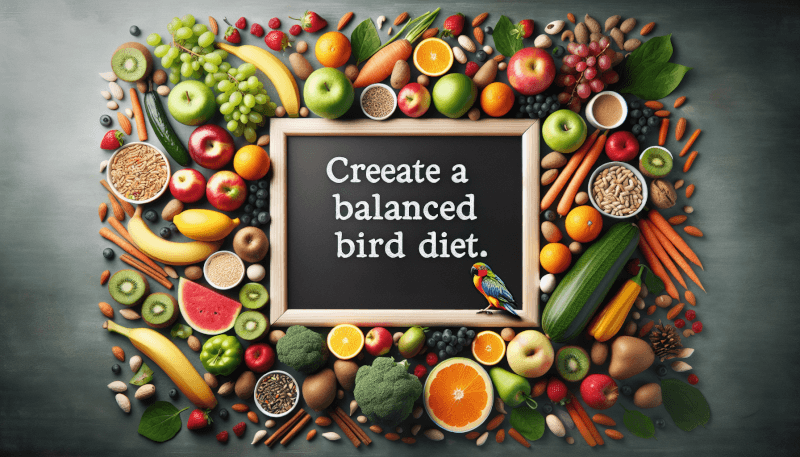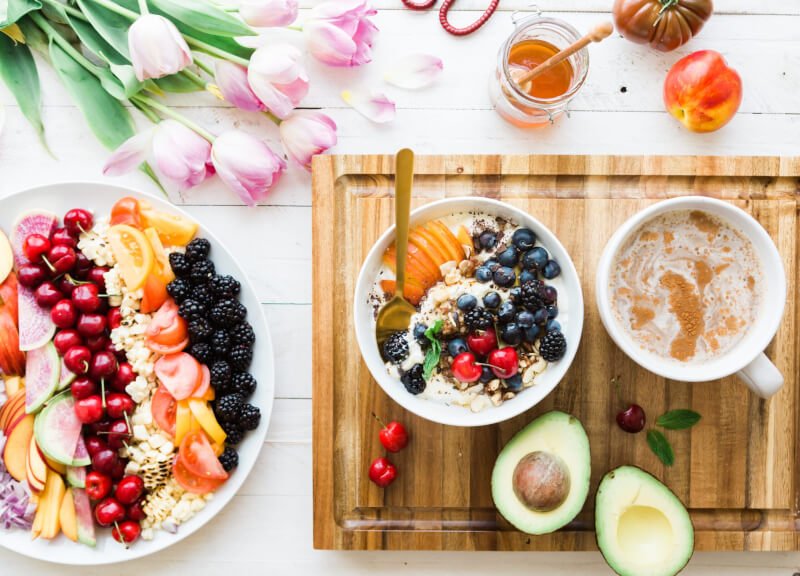Maintaining a balanced diet is essential for the health and vitality of your feathered friend. In this article, we will explore some of the best ways to ensure your bird is getting the proper nutrients it needs to thrive. From incorporating a variety of fresh fruits and vegetables to monitoring portion sizes, these simple tips and tricks will help you keep your bird’s diet in tip-top shape. So, let’s dive right in and discover how you can provide the best diet for your beloved bird!
Choosing a Nutritious Base Diet
When it comes to choosing a nutritious base diet for your bird, it’s important to do your research. There are several options available, including seed mixes and pellets. Both have their advantages, so it’s a good idea to select a variety of pellets to provide your bird with a balanced diet. Pellets are specially formulated to contain a mix of essential nutrients and vitamins that your bird needs to thrive. They come in different sizes and flavors, so you can find the perfect pellets that your bird will enjoy.
While pellets are a great choice for a base diet, it’s also worth considering a seed mix as a supplement. Seeds provide natural variety and can be a tasty treat for your bird. However, it’s important to keep in mind that seeds alone are not nutritionally complete and should not make up the majority of your bird’s diet. Use them as a supplement, offering them in small quantities to add some excitement to your bird’s diet.
Incorporating Fresh Fruits and Vegetables
In addition to a base diet, it’s crucial to incorporate fresh fruits and vegetables into your bird’s diet. These provide essential vitamins, minerals, and antioxidants that are beneficial to your bird’s overall health. However, not all fruits and vegetables are safe for birds to consume. Some popular safe options include apples, bananas, grapes, carrots, and leafy greens like kale and spinach.
To make mealtimes more enjoyable for your bird, offer a mix of colors and textures. Birds are attracted to vibrant colors, so include a variety of fruits and vegetables that are visually appealing. Additionally, birds enjoy the different textures that fruits and vegetables offer, so be sure to provide some crunchy options like celery or bell peppers alongside softer fruits like berries or melons.
When serving fresh fruits and vegetables, it’s important to serve them in proper portions. Birds have small stomachs and can easily become overwhelmed if presented with large quantities of food. Start with small portions and observe your bird’s eating habits. If they finish their food quickly, you can gradually increase the portion size. It’s better to offer fresh food in small quantities more frequently rather than leaving large amounts that may spoil.
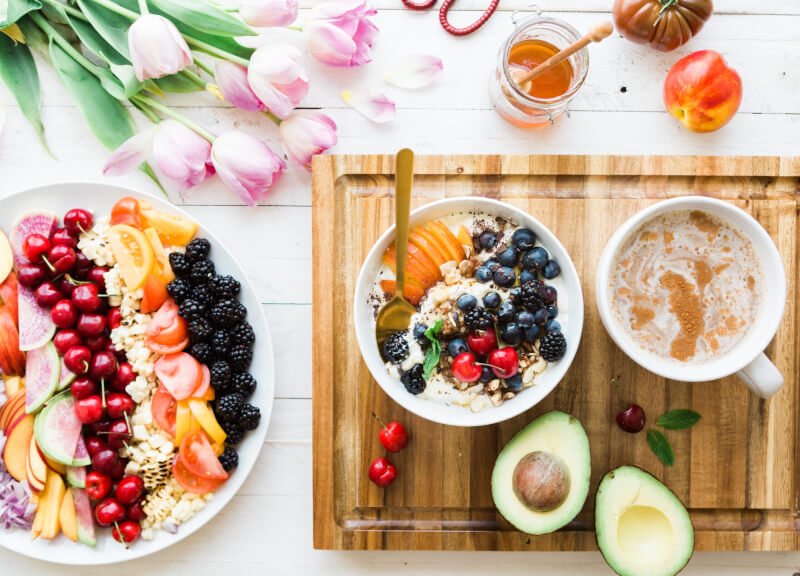
Including Protein-Rich Foods
Protein is an essential component of a bird’s diet as it aids in muscle development and overall growth. Introducing cooked eggs to your bird’s diet is an excellent way to provide a protein-rich food source. Eggs can be scrambled or hard-boiled and chopped into small pieces for your bird to eat. Just be sure to remove any shells and avoid seasoning the eggs with salt or other additives.
Another protein-rich option to consider is lean meats like chicken. You can cook small pieces of boneless, skinless chicken and offer them as a tasty treat. Ensure that the meat is fully cooked and avoid using any seasonings or additives.
Legumes and beans are also a great addition to your bird’s diet. They provide a good source of plant-based protein, fiber, and other essential nutrients. Cooked lentils, chickpeas, and kidney beans can be offered to your bird in moderation. Be sure to rinse canned varieties thoroughly to reduce their sodium content before serving them to your feathered friend.
Including Healthy Fats
While fats may have a negative connotation in human diets, healthy fats are an important part of a bird’s diet. They provide a concentrated source of energy and help with the absorption of vitamins. It’s important to provide sources of omega-3 fatty acids in your bird’s diet. These can be found in foods like flaxseeds, chia seeds, and hemp seeds.
Nuts and seeds can also be included in your bird’s diet, but it’s essential to offer them in small amounts. Many nuts and seeds are high in fat, so it’s important to moderate their intake. Some safe options include unsalted almonds, walnuts, and sunflower seeds. Keep in mind that larger birds can handle larger nuts better than smaller birds, so adjust the portion sizes accordingly.
While healthy fats are important, it’s crucial to avoid excessive fatty foods. Birds have sensitive digestive systems and consuming too many high-fat foods can lead to obesity and other health issues. Moderation is key when it comes to incorporating healthy fats into your bird’s diet.
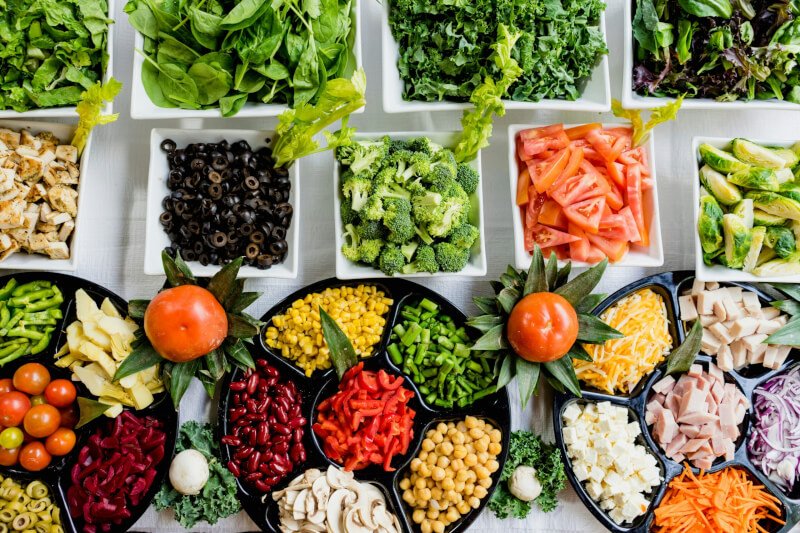
Avoiding Harmful Foods
Just as there are foods that are beneficial to your bird’s health, there are also foods that should be avoided. One of the most important things to remember is never to feed your bird chocolate. Chocolate contains theobromine, a compound that is toxic to birds and can be fatal if ingested. Be sure to keep all chocolate and chocolate-containing products out of reach of your bird.
Avocados and onions are other foods that should be strictly avoided. Avocados contain a substance called persin, which is toxic to birds. Onions, on the other hand, contain a compound called thiosulphate, which can lead to anemia in birds. It’s important to be mindful of any dishes or meals that contain these ingredients and ensure that your bird does not have access to them.
Additionally, it’s crucial to limit the consumption of sugary and salty foods. Birds do not require added sugar or salt in their diets and excessive amounts can be harmful to their health. Avoid feeding your bird sugary snacks like cookies or salty foods like chips. Stick to natural, healthy options that provide the necessary nutrients without added sugars or excessive salt.
Ensuring Sufficient Calcium Intake
Calcium is a vital mineral for the health of your bird’s bones and feathers. To ensure sufficient calcium intake, offer cuttlebones and mineral blocks. These can be found in most pet stores and provide a natural source of calcium that your bird can chew on as needed. Cuttlebones are made from the internal skeleton of cuttlefish and are rich in calcium and other minerals.
In addition to cuttlebones and mineral blocks, certain foods are also rich in calcium and can be included in your bird’s diet. Broccoli is an excellent source of calcium and can be cooked or served raw. Be sure to chop it into small, manageable pieces for your bird to eat.
Supplementing with a calcium powder can also be beneficial, especially for birds with higher calcium requirements. Consult with your avian veterinarian to determine if adding a calcium powder to your bird’s diet is necessary and what the appropriate dosage should be.
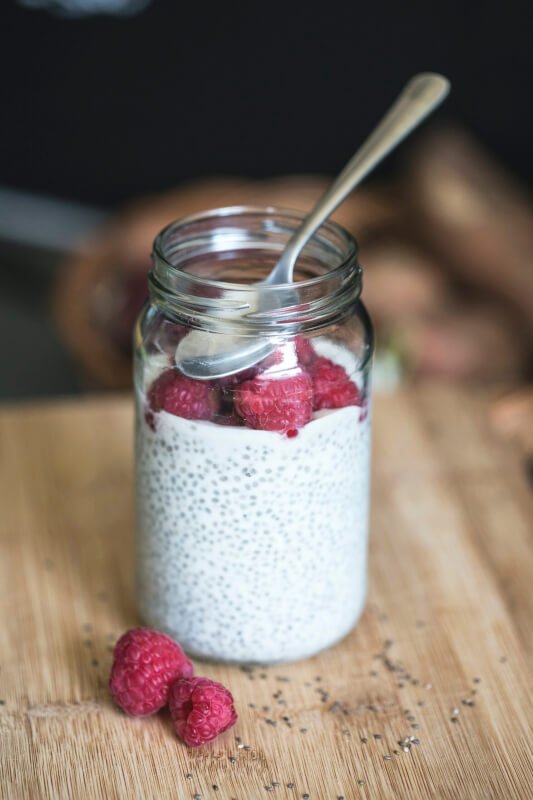
Introducing Natural Supplements
While a balanced diet is crucial, there may be cases where your bird requires additional supplements. Probiotics can be beneficial for gut health and can help support the growth of healthy bacteria in your bird’s digestive system. Probiotics can be found in powder form and can be sprinkled over your bird’s food according to the recommended dosage.
Vitamin and mineral supplements can also be considered, especially if your bird has specific deficiencies or health conditions. However, it’s important to consult with an avian veterinarian before introducing any supplements to your bird’s diet. They can provide guidance on which supplements are necessary and the appropriate dosage for your specific bird.
Providing Clean Water
Clean water is essential for your bird’s overall health and well-being. Birds need access to fresh water at all times. It’s important to change the water daily to ensure it remains clean and free from any impurities. Stagnant water can harbor bacteria and other harmful substances that can be detrimental to your bird’s health.
Using a clean water dispenser is also important. Avoid using open dishes or bowls as they can easily become contaminated with food particles or droppings. Invest in a water dispenser designed specifically for birds that can be easily cleaned and refilled.
While it may be tempting to add supplements or flavors to your bird’s water, it’s best to avoid doing so. Water should be kept pure and free from any additives. If you have concerns about your bird’s hydration or water consumption, consult with your avian veterinarian for further guidance.
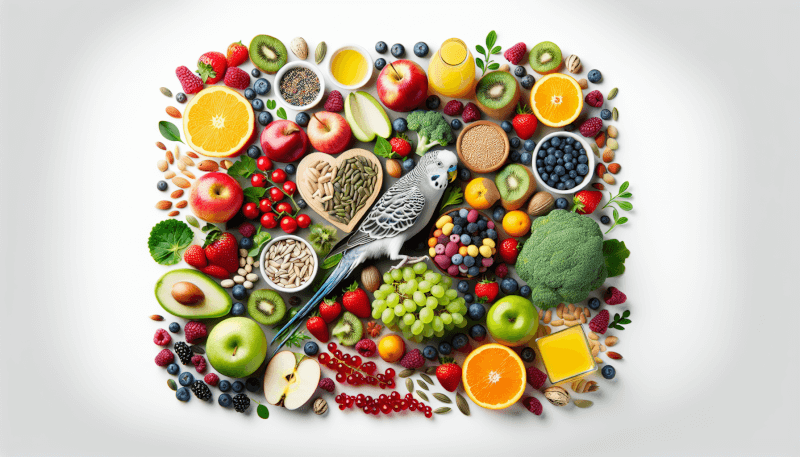
Monitoring and Adjusting the Diet
Monitoring your bird’s weight and overall health is crucial in maintaining a balanced diet. Regularly weigh your bird to ensure they are maintaining a healthy weight. Sudden weight loss or gain can indicate underlying health issues or an imbalanced diet. Keep an eye out for any changes in behavior, feather condition, or droppings, as these can signify potential health problems.
If you notice any issues or concerns, it’s important to make dietary adjustments as needed. Consult with your avian veterinarian to determine the best course of action. They may recommend changes to your bird’s base diet, portion sizes, or additional supplements based on their specific needs.
Your avian veterinarian is a valuable resource when it comes to ensuring your bird’s diet is well-balanced. Seek their guidance if you have any questions or concerns about your bird’s nutrition. They can provide personalized advice and recommendations based on your bird’s breed, age, and overall health.
Creating a Feeding Schedule
Establishing a regular feeding schedule is important for your bird’s well-being. Birds thrive on routine and knowing when to expect their meals can provide a sense of security and stability. Determine the appropriate mealtimes for your bird and stick to them consistently.
It’s important to avoid overfeeding your bird. Birds have small stomachs and can easily overeat if presented with an unlimited supply of food. Follow the recommended portion sizes for your bird’s base diet and fresh foods, and monitor their consumption. Adjust portion sizes accordingly if you notice your bird consistently leaving leftover food or gaining weight.
While it’s important to provide a well-balanced diet, it’s also okay to offer healthy treats in moderation. Treats can be used as a form of positive reinforcement during training or simply as an occasional special treat. Opt for healthy options like pieces of fresh fruit or vegetables, or homemade bird-friendly treats. Avoid offering sugary or fatty treats as they can contribute to weight gain and other health issues.
In conclusion, maintaining a balanced diet for your bird is essential for their overall health and well-being. By researching and selecting a nutritious base diet, incorporating fresh fruits and vegetables, including protein-rich foods and healthy fats, avoiding harmful foods, ensuring sufficient calcium intake, introducing natural supplements, providing clean water, monitoring and adjusting the diet, and creating a feeding schedule, you can provide your bird with a well-rounded and nourishing diet. Remember to consult with your avian veterinarian for personalized guidance and recommendations based on your bird’s specific needs. With a balanced diet and proper care, your feathered friend will thrive and lead a happy and healthy life.
